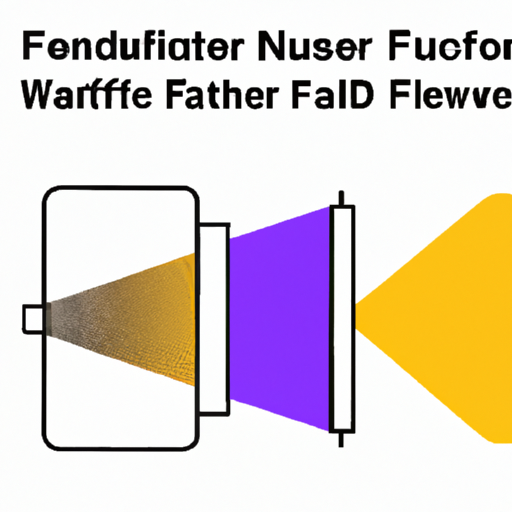RF filters are essential components in modern communication systems, playing a crucial role in ensuring the efficient transmission and reception of radio frequency signals. These filters are used to selectively pass or reject certain frequencies within the RF spectrum, allowing for the isolation of desired signals while minimizing interference from unwanted frequencies. The main application direction of RF filters spans a wide range of industries and technologies, including telecommunications, aerospace, defense, and consumer electronics.

Another important application of RF filters is in satellite communication systems. Satellites rely on RF filters to separate and amplify signals received from Earth stations before transmitting them back to the ground. These filters help to improve the signal-to-noise ratio and enhance the overall performance of satellite communication links, which are vital for various applications, including weather forecasting, remote sensing, and global positioning systems.
In the aerospace and defense industries, RF filters are used in radar systems, electronic warfare equipment, and communication systems on aircraft, ships, and military vehicles. These filters play a critical role in detecting and tracking targets, jamming enemy signals, and ensuring secure communication between military units. RF filters are designed to withstand harsh environmental conditions, such as extreme temperatures, vibrations, and electromagnetic interference, making them essential components in mission-critical defense applications.
RF filters also find widespread use in consumer electronics, such as smartphones, tablets, and smartwatches. These devices rely on RF filters to separate and amplify signals from various wireless communication technologies, including Wi-Fi, Bluetooth, and cellular networks. RF filters help to improve the performance and reliability of wireless connections, enabling seamless data transfer and voice calls on mobile devices.
In the automotive industry, RF filters are used in vehicle telematics systems, such as GPS navigation, satellite radio, and remote keyless entry. These filters help to enhance the accuracy and reliability of location-based services, entertainment systems, and wireless connectivity in modern cars. RF filters are also employed in automotive radar systems for collision avoidance and adaptive cruise control, improving the safety and efficiency of driving.
RF filters are essential components in industrial automation and IoT (Internet of Things) applications, where wireless communication is used to monitor and control various devices and sensors. These filters help to ensure the reliable transmission of data over long distances in harsh industrial environments, such as factories, warehouses, and oil refineries. RF filters are also used in smart home devices, such as smart thermostats, security cameras, and door locks, to enable wireless connectivity and remote control.
Overall, the main application direction of RF filters encompasses a wide range of industries and technologies, where the efficient transmission and reception of radio frequency signals are essential. Whether in telecommunications, aerospace, defense, consumer electronics, automotive, industrial automation, or IoT applications, RF filters play a critical role in enabling wireless communication, improving signal quality, and minimizing interference. As the demand for wireless connectivity continues to grow, the importance of RF filters in ensuring reliable and efficient communication will only increase in the future.
RF filters are essential components in modern communication systems, playing a crucial role in ensuring the efficient transmission and reception of radio frequency signals. These filters are used to selectively pass or reject certain frequencies within the RF spectrum, allowing for the isolation of desired signals while minimizing interference from unwanted frequencies. The main application direction of RF filters spans a wide range of industries and technologies, including telecommunications, aerospace, defense, and consumer electronics.

Another important application of RF filters is in satellite communication systems. Satellites rely on RF filters to separate and amplify signals received from Earth stations before transmitting them back to the ground. These filters help to improve the signal-to-noise ratio and enhance the overall performance of satellite communication links, which are vital for various applications, including weather forecasting, remote sensing, and global positioning systems.
In the aerospace and defense industries, RF filters are used in radar systems, electronic warfare equipment, and communication systems on aircraft, ships, and military vehicles. These filters play a critical role in detecting and tracking targets, jamming enemy signals, and ensuring secure communication between military units. RF filters are designed to withstand harsh environmental conditions, such as extreme temperatures, vibrations, and electromagnetic interference, making them essential components in mission-critical defense applications.
RF filters also find widespread use in consumer electronics, such as smartphones, tablets, and smartwatches. These devices rely on RF filters to separate and amplify signals from various wireless communication technologies, including Wi-Fi, Bluetooth, and cellular networks. RF filters help to improve the performance and reliability of wireless connections, enabling seamless data transfer and voice calls on mobile devices.
In the automotive industry, RF filters are used in vehicle telematics systems, such as GPS navigation, satellite radio, and remote keyless entry. These filters help to enhance the accuracy and reliability of location-based services, entertainment systems, and wireless connectivity in modern cars. RF filters are also employed in automotive radar systems for collision avoidance and adaptive cruise control, improving the safety and efficiency of driving.
RF filters are essential components in industrial automation and IoT (Internet of Things) applications, where wireless communication is used to monitor and control various devices and sensors. These filters help to ensure the reliable transmission of data over long distances in harsh industrial environments, such as factories, warehouses, and oil refineries. RF filters are also used in smart home devices, such as smart thermostats, security cameras, and door locks, to enable wireless connectivity and remote control.
Overall, the main application direction of RF filters encompasses a wide range of industries and technologies, where the efficient transmission and reception of radio frequency signals are essential. Whether in telecommunications, aerospace, defense, consumer electronics, automotive, industrial automation, or IoT applications, RF filters play a critical role in enabling wireless communication, improving signal quality, and minimizing interference. As the demand for wireless connectivity continues to grow, the importance of RF filters in ensuring reliable and efficient communication will only increase in the future.